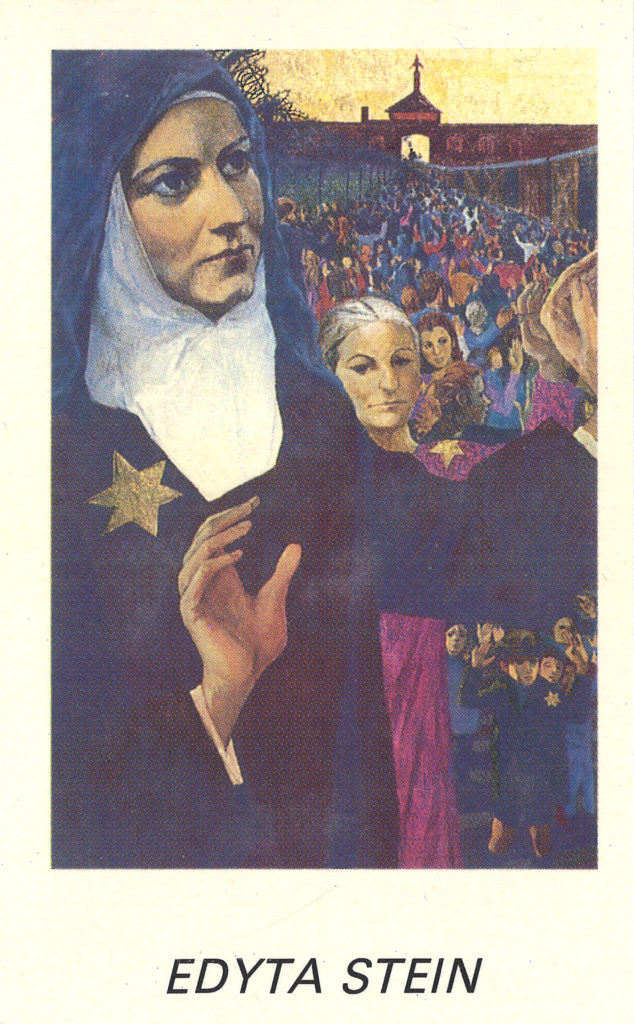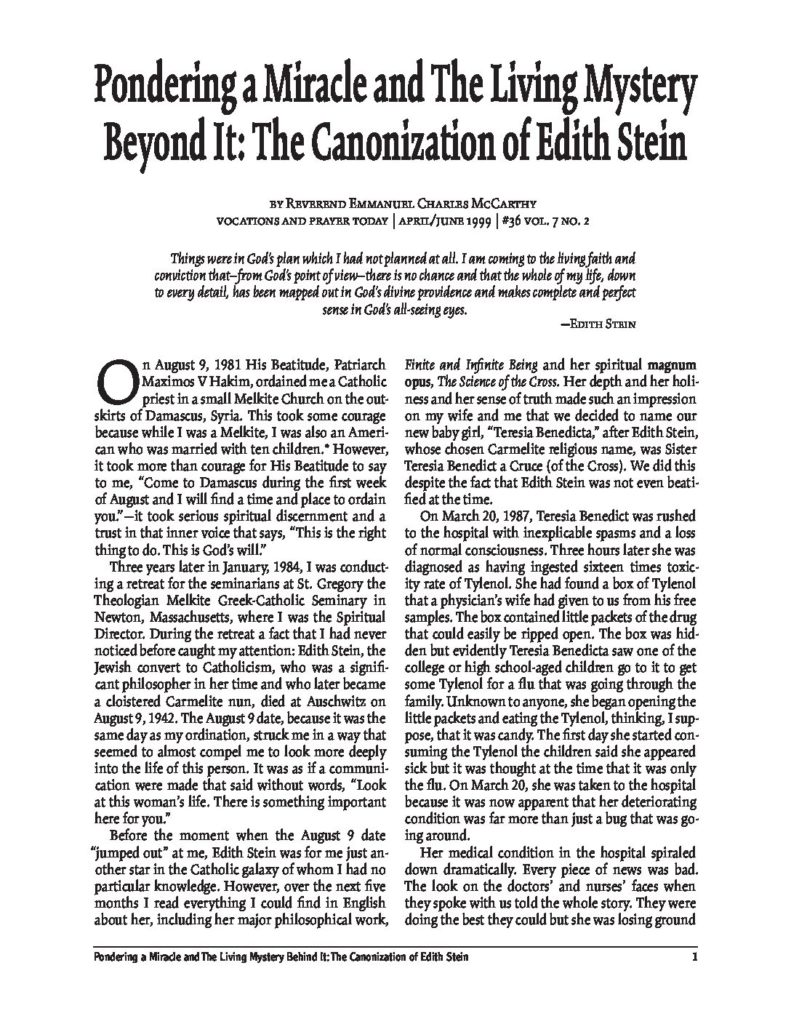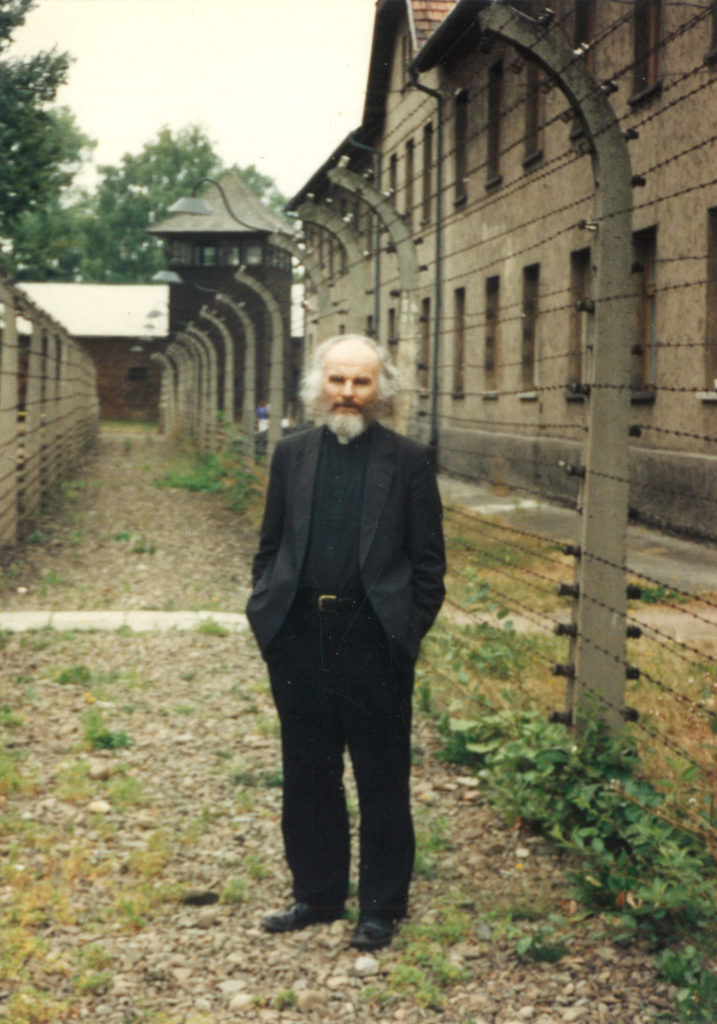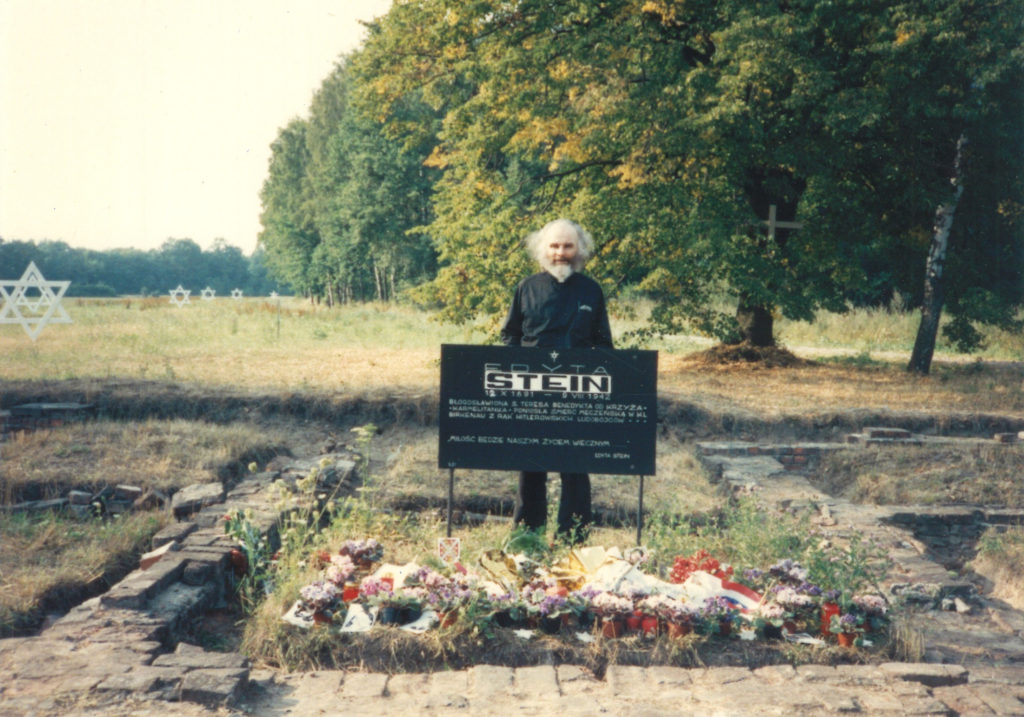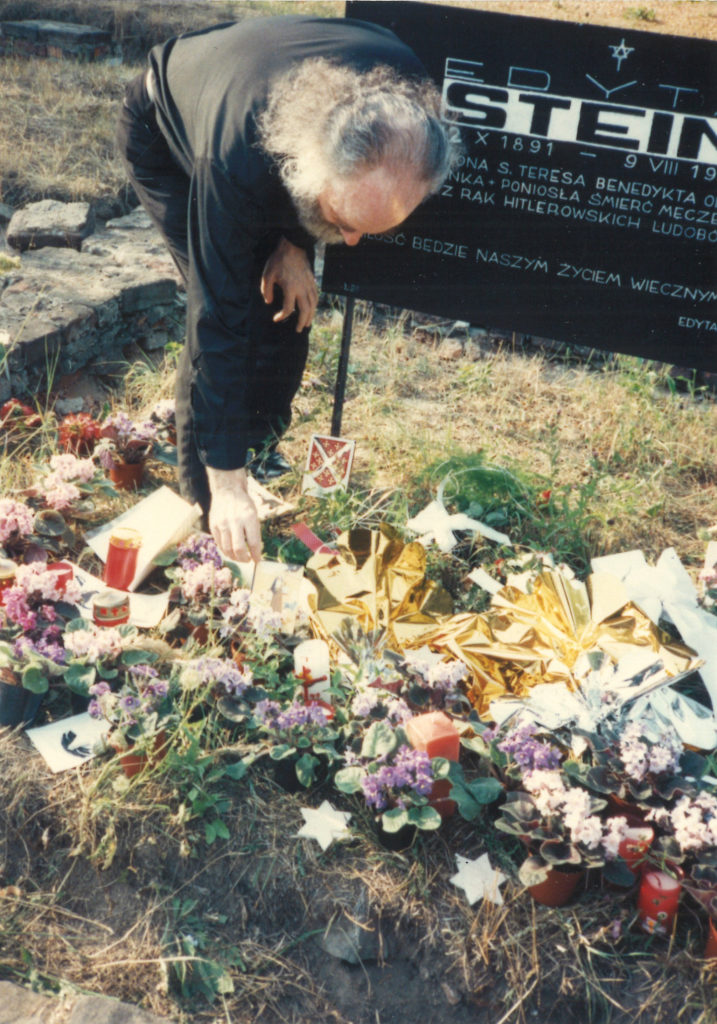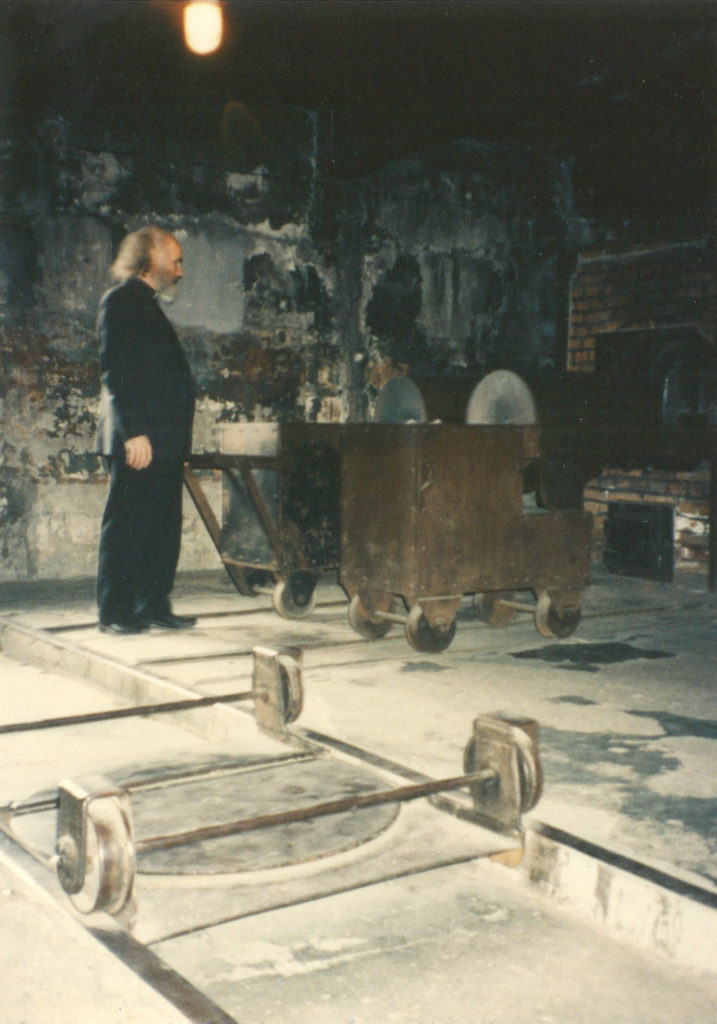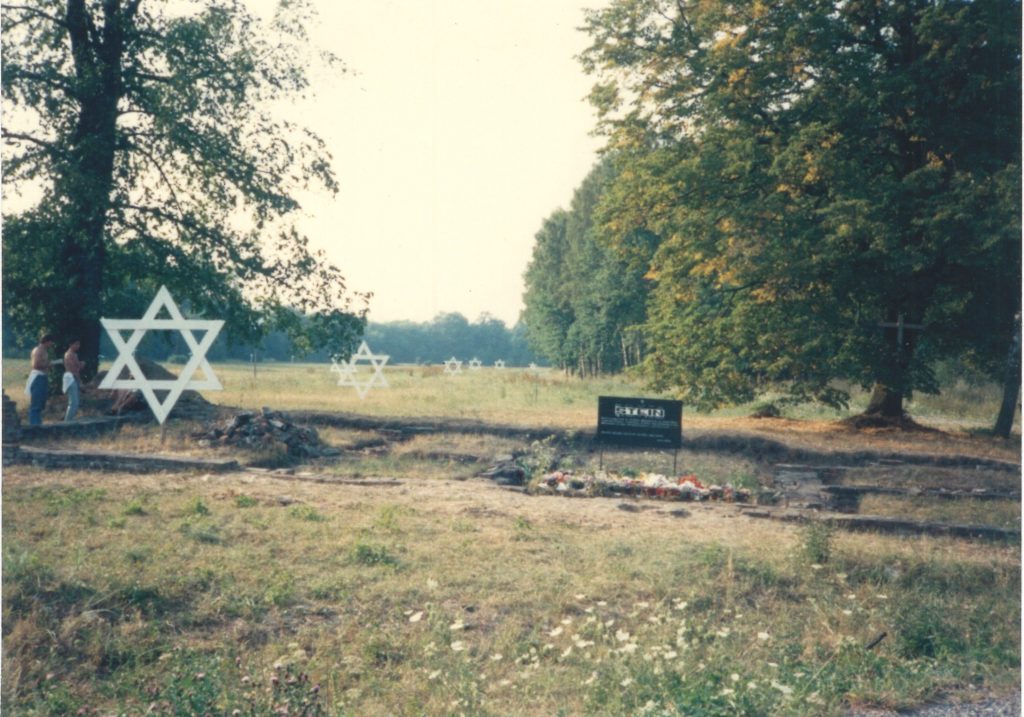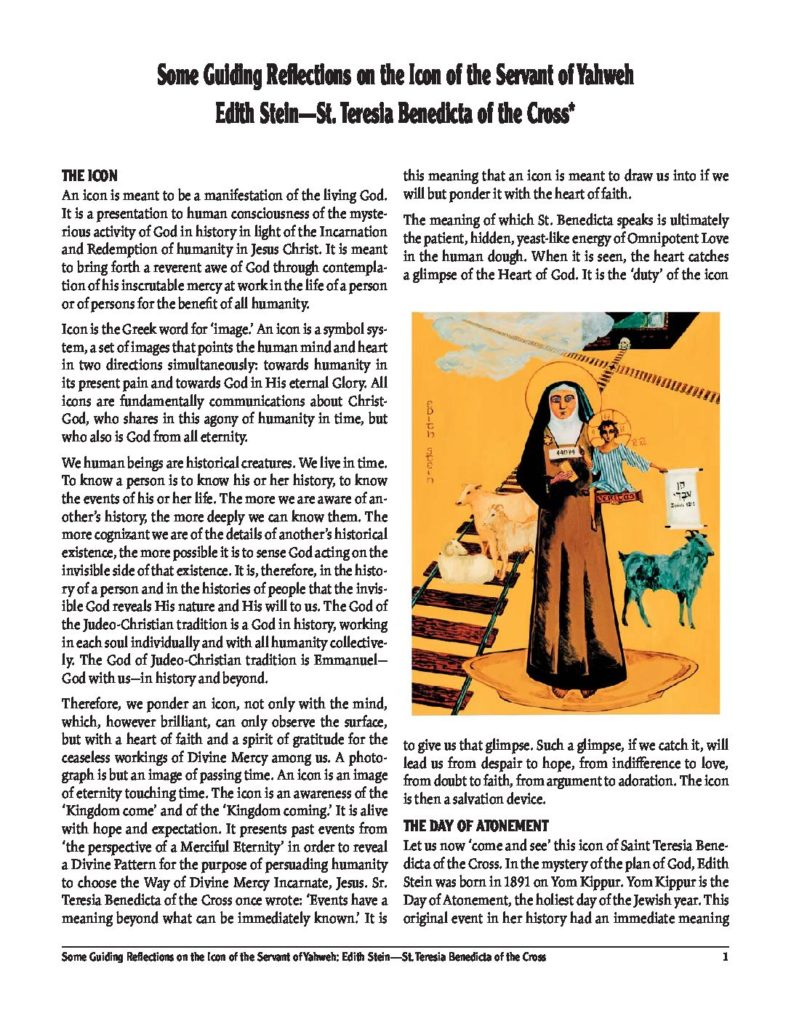Our latest podcast, Episode 28, featured Sam Dean, husband, father of seven children, Catholic convert and former Army Officer (1988-2010). He talked about his quest to find answers to his questions about “Just War” and where that has led him. Here is a an essay he wrote which he has given me permission to share here.
________________________________
A CATHOLIC FATHERIN A PERPETUAL WAR SOCIETY REACHES OUT FOR HELP FROM THE CHURCH
by Sam Dean
I am the 50 year old father and primary catechist for my seven children and I need your help. I have come to a question on a Catholic teaching, a changeable doctrine, that I cannot answer. I’ve asked this question of my pastor, my bishop, and more than a dozen other Catholic orders, organizations, and even our Pope. I have received three responses. When I asked the question on Catholic blogs or radio the subject quickly changed or I got an answer to a different question. When I asked PhDs in Catholic seminaries I often received arrogance, obfuscation, anger, and finally and always, silence. The silence, as they say, is deafening.
What question could possibly elicit these kinds of responses? It has nothing to do with sex or the sexual abuse scandal. It has nothing to do with money or the banking scandal. It has nothing to do with some obscure doctrine that only someone who did his PhD dissertation on would know existed. The doctrine is hardly thought of at all, but is relevant to an American on a daily basis.
Before I ask you this question, I should introduce myself. I celebrated my 26th wedding anniversary this year. My wife is a cradle Catholic who married a rather poorly formed Methodist and finally, after more than a decade and a half of prayer, witnessed my entering into full communion with the Catholic Church in 2006. As I noted earlier, we have seven children, but we have at least four more we hope to see in heaven. I retired from the US Army in 2010 and currently work at a small Catholic seminary as the registrar.
That question…? How does a man in my situation come to a question that causes such discomfort? For me and this question, it was quite by accident. In our parish, we are blessed to have the Order of Preachers, Dominicans. In 2011, I was walking down a corridor of the church with a perfectly wonderful priest. I suppose the topic of discussion related to my former career and his interest in military history. That fateful moment occurred when he commented that, in his opinion, those Catholics who believe in nonviolence were “just wrong”. He proceeded to describe a scenario that would allow a preemptive war against the Plains Indians in defense of Chicago. I had recently retired from the military as an officer and I played a mental game by using the military planning steps to evaluate his scenario. I played with this scenario for quite some time. In the end, I was left with a curiosity about the Roman Catholic Just War Doctrine (JWD) as his scenario had raised more questions than it answered. I decided that I needed to understand the JWD better as my children were coming of age and would soon be eligible for military employment. I spent 20 years in the US military and didn’t know the JWD; my children would know their Church’s teaching on war.
Over the next months and years I read many books on the JWD. I discussed the JWD with the professors who teach it at seminaries and those who give lectures on the subject. I expected that my concerns about the JWD were that I didn’t understand it and that a simple explanation would be evident. Unfortunately, that didn’t happen. The more I researched, the more my concerns grew. My years as a military officer required me to study military history and as I came to understand the JWD, I began to question whether the wars I fought in and those that I had studied had met the stringent JWD requirements.
It helps me to understand an idea if I understand the larger picture into which it fits. The Roman Catholic Just War Doctrine has a knowable history. The idea of a “Christian” just war was first brought into the Roman Catholic Church by Saint Ambrose in the late 4th century and by his pupil, Saint Augustine, in the early 5th century. I had expected our JWD to have its genesis from the Gospel or New Testament, but in reality it is from Cicero, a 1st century B.C. Roman political philosopher. At a time when our parish priest would still discuss the JWD with me, I asked him if he knew the origins of the JWD. He didn’t, but asked the Dominican House of Studies in Washington D.C.. Their response was that it was from Cicero. I still remember the uncomfortable look on his face when he related to me the answer. I wonder sometimes if he still grapples with that answer. I know I do. It is not easy for me to reconcile the fact that my Church’s JWD is not based on the New Testament, but 1st century B.C. pagan Roman political philosophy.
Now that we know the origin of our JWD, what is its purpose? The JWD defines when a Catholic may morally participate in the mass homicidal violence we call war. According to the JWD, in order for a Catholic to participate in war, the war must be “just”. In order for a war to be just, it must meet each of the requirements of the JWD before the war is commenced (Jus ad bellum) and while it is being prosecuted (Jus in bello). The Catechism of the Catholic Church (CCC) states in 2309 that “The strict conditions for legitimate defense by military force require rigorous consideration. The gravity of such a decision makes it subject to rigorous conditions of moral legitimacy. At one and the same time:” (emphasis mine) If any of the requirements of the JWD are not met, the war is unjust and a Catholic may not participate. Any homicide, the killing of a human, committed in an unjust war is murder. As we know, murder is intrinsically evil. In summary, Catholics may participate in a war as long as it is just and not if, at any time, it is unjust. In this aspect, the JWD is very clear and specific.
How certain do I need to be that a war is just? What I found was that the level of moral certainty to which the requirements of the JWD must be known before a Catholic may make a decision is very specific, but that it still requires a personal assessment. The CCC 2309 states, “The strict conditions for legitimate defense by military force require rigorous consideration. The gravity of such a decision makes it subject to rigorous conditions of moral legitimacy.” Clearly we Catholics must know that a war is just to a very high degree of certainty before we participate. A war is considered unjust until it has met and continues to meet all of the JWD requirements to a level of moral certainty that is measured with “rigorous consideration” or probabiliorism. I found it helpful to understand another moral decision that requires a level of certainty of probabiliorism – the decision to bestow holy orders on a seminarian. Our Church will only bestow holy orders on a person when it knows to a level of certainty of probabiliorism that he is prepared for priestly life. As you can imagine, this is a very important decision and one which our Church does not make haphazardly. Correspondingly, we must apply the JWD to the same level as our Church applies this certainty to its future priests. Of course, not all priests remain priests. Our Church recognizes that it cannot be perfectly certain (absolute tutiorism). We are not expected to be perfectly certain that a war is just. Our Church guards against weakening the standards of moral questions (laxism). No one wants a priest that is not prepared for the priestly life. Any attempt to weaken or apply the JWD in a manner not as strictly as the doctrine demands courts committing murder. Both absolute tutiorism and laxism are condemned by our church. In my research, I never found absolute tutiorism, but found laxism quite common with the JWD.
I think two explicit examples from our Church may help us fully understand the gravity of this aspect of the JWD. Saint Pope John Paul II stated in his encyclical The Splendor of Truth (Veritatis Spendor), “Like the natural law itself and all practical knowledge, the judgment of conscience also has an imperative character: man must act in accordance with it. If man acts against this judgment or, in a case where he lacks certainty about the rightness and goodness of a determined act, still performs that act, he stands condemned by his own conscience…”
The CCC 2242 states, “The citizen is obliged in conscience not to follow the directives of civil authorities when they are contrary to the demands of the moral order, to the fundamental rights of persons or the teachings of the Gospel. Refusing obedience to civil authorities, when their demands are contrary to those of an upright conscience, finds its justification in the distinction between serving God and serving the political community. “Render therefore to Caesar the things that are Caesar’s, and to God the things that are God’s.” “We must obey God rather than men”:”
What are the specific requirements of the JWD? Again, our CCC 2309 gives the requirements to initiate a just war as:
- the war must be defensive;
- the damage inflicted by the aggressor on the nation or community of nations must be lasting, grave, and certain;
- all other means of putting an end to it must have been shown to be impractical or ineffective;
- there must be serious prospects of success;
- the use of arms must not produce evils and disorders graver than the evil to be eliminated. The power of modern means of destruction weighs very heavily in evaluating this condition.
The CCC states the following requirements for conducting a war:
- 2312 The Church and human reason both assert the permanent validity of the moral law during armed conflict. “The mere fact that war has regrettably broken out does not mean that everything becomes licit between the warring parties.”
- 2313 Non-combatants, wounded soldiers, and prisoners must be respected and treated humanely. Actions deliberately contrary to the law of nations and to its universal principles are crimes, as are the orders that command such actions. Blind obedience does not suffice to excuse those who carry them out. Thus the extermination of a people, nation, or ethnic minority must be condemned as a mortal sin. One is morally bound to resist orders that command genocide.
- 2314 “Every act of war directed to the indiscriminate destruction of whole cities or vast areas with their inhabitants is a crime against God and man, which merits firm and unequivocal condemnation.” A danger of modern warfare is that it provides the opportunity to those who possess modern scientific weapons—especially atomic, biological, or chemical weapons—to commit such crimes.
You can see, as I did, that it is extraordinarily difficult for a Catholic to justly participate in a war, as the requirements for the JWD are demanding. The JWD is not difficult to understand and shouldn’t be difficult to apply. I could see quite plainly that even the first requirement, that a war be defensive, would eliminate over half of all wars. Both sides of a war cannot wage a defensive war (certainly not to a level of moral certainty of probabiliorism), which eliminates one side of any conflict outright. In many wars, neither side is defensive. Because of the other requirements and the level of rigorousness of the JWD, reaching the level of “just” is nearly impossible. Remember, if ANY of the requirements are not met, a war is unjust and a Catholic may not participate or must stop participating. I felt confident that I could teach my children the Roman Catholic Just War Doctrine. Now what I needed were some concrete examples of our Church applying its 1600 year old doctrine.
My search for that historical example was where the wheels came off of the bus, so to speak. As I searched, I asked the following question many times.
In the approximately 16 centuries since the Roman Catholic Church adopted the JWD, when have the leadership of the Church within a state’s boundaries ever declared their politician’s or Caesar’s war unjust?
For the JWD to have any moral force, answers such as the following should be so numerous as to require many volumes to contain it. “Dear Prime Minister/President/Caesar, though we remain obedient subjects, we Catholics will not be able to participate in your war as it does not meet our doctrine for just wars.” The only example I found was a pastoral letter published by Bishop John Michael Botean of the Romanian Catholic Church. I would highly recommend reading his letter at (http://www.centerforchristiannonviolence.org/action-against-violence/). He understands and employs the Roman Catholic Church’s Just War Doctrine and passes his pastoral judgement on to his flock.
If well over half of all wars must be unjust from only one requirement, that is a stunning verdict on the JWD and those entrusted with the shepherding of the souls of their flocks. That is my question that elicits the responses that I described earlier in my article. Do you understand my predicament, fellow Catholics? If I am to catechize my family, the men of the Church owe me/us an answer.
My question for you readers, fathers, mothers, clergy, Catholics, is how can this be? If we are a “Just War” church, how can our doctrine always give us war? As a parent and primary catechist for my seven children, what do I teach them?
As I researched the JWD and searched for examples of our Church following her own doctrine, I came across a few noteworthy descriptions, responses, observations, and interactions. What I offer next may help you understand the pervasiveness and depth of the problem.
The curriculum at most Catholic seminaries for the Master of Divinity degree includes one or two basic Catholic moral theology courses, one course on medical morality, one course on sexual morality, and one on the Church’s social teachings. The JWD is not covered in the basic moral theology course(s). The JWD, the Church’s moral doctrine governing the mass killing of humans is taught in the Catholic Social Teaching course. This seems somewhat out of place considering the intrinsically evil nature of murder and the “rigorous consideration” we demand for a just war. I would never have imagined that the moral ins and outs of sex would receive an entire semester course, but mass homicide would receive a few hours along with discussions on wages and housing. Could the fruits of this priority be seen in our Church? Many of our laity see sex as a social event and are nearly all completely ignorant of their Church’s requirement for justified human slaughter – the JWD.
In 25 years of attending Catholic Mass, I have never heard a homily on the JWD. I’ve received many homilies on illicit sex, abortion, homosexuality, St. Thomas Aquinas, the Bishop’s Annual Appeal, and many others, but never one on the JWD. I have learned that my experience is not uncommon.
I sent the letter to my pastor. He eventually commented to me that he had received the letter and that he would eventually respond once he learned more about the JWD. How could he have successfully passed through six years of Dominican seminary, many years as a priest, and become the pastor of a parish and not know the JWD? The United States has been at war in more years than it has existed and we have clergy who are unfamiliar with the precise doctrine that must guide our decision to participate in justifiable or murderous killing?
My family visited a Catholic seminary for a tour. On that tour, they were shown a statue and a painting of the founder, a monsignor. On the monsignor’s cassock are ribbons from his time in the Prussian military during the mid- to late-19th century before he became a priest. He fought in the 1864 war with Denmark and the 1865-66 war with Austria. These wars were not “just” according to the Catholic JWD. Each was a war of aggression and could have easily been avoided. That he participated in these wars is unfortunate; that he displayed the accouterments from these unjust wars on his clerical clothing is a scandal. That our Church still displays these ribbons perpetuates a laxist understanding of the conditions that must be met for a Catholic to justly slaughter humans in war. If he, instead of military ribbons, wore ribbons with the names of women he bedded (was victorious over) before he became a priest, would he have been permitted to continue once a bishop found out? I suspect he would have been censured and the ribbons removed. There would be no paintings or statues to perpetuate what the Church is willing to admit is scandal.
The quote below is from an email response I received from a moral theology professor at a Catholic major seminary. This professor is a priest and is loved and respected by the faculty and the seminarians. In spite of his extensive education, years of teaching, and position of influence over future priests, he argues for a JWD that is measured by laxism.
“As for the question of a just war. The Church has spelled out rather carefully the necessary conditions for a just war both in its initiation and in its prosecution. These are predicated on the idea that individuals and groups have an absolute right to defend against having their lives taken by unjust aggressors, and that it is morally permissible to save life, my own or that of other innocents, even by using lethal force if necessary. People can and do have differing opinions about whether these conditions are met in particular situations. There were in my view, too many people who were willing to state that they were not met in the Iraq war and that it was therefore an unjust war. They were never able to prove this claim and so what is gratuitously proposed can be dismissed.”
Of course, a war must be proven to be “just” BEFORE a Catholic may participate and continue to be proven “just” each moment. For but one moment of unjust prosecution of the war and it is “unjust” according to the JWD. How can a priest, a teacher of moral theology, a holder of such an influential and learned position, so easily fall into a condemned form of moral justification (laxism)?
I’ve included an excerpt from each of the three responses I received to the many letters I wrote. Each had a slightly different focus, but each had a theme that I found common to my overall research.
– “I think you have answered your question regarding JWD. Through your research of this topic you could not find a clear answer to what makes a just war. Yes, the catechism gives some guideline to follow and questions that must be asked. However, in any conflict be that war or a family dispute there are no clear answers available; each individual is charged with the obligation to seek peace and restore harmony and for this to take place forgiveness is necessary.”
– “Applying the just war doctrine to a particular war is not easy. The just war criteria are very subjective. Over the years, the just war doctrine was applied to many wars, all of which were declared “just”. It is difficult to objectively define what is “grave”, “certain”, “impractical”, “ineffective”, “serious prospects of success”, or “disorders graver than the evil to be eliminated”.”
– “…the application of any moral norm is always subject to interpretation. What does it mean, in the practical order, to be just, for instance? We may all hold justice as a value and have every good intent to live justly, but that in no way means what we all view a specific activity in the same way. What one person views as a just solution to an issue may appear unjust to another. We live in a gray world.”
If a Catholic does not know to a level of probabiliorism that a war is just, he cannot participate. That is our doctrine and has been for 1600 years. If our clergy do not have confidence in the doctrine, why do we pretend?
I called into EWTN’s Open Line Friday radio show on September 12, 2014. The topic was the Just War Doctrine and I was able to ask my question. The answer was a frantic hodgepodge of comments that avoided the question. I was told that the Church didn’t dare oppose the state and gave the example of what happened to the Dutch churches when they openly opposed the German wartime actions against the Jews in Holland. I was also told that Jesus had no problem with military action because He didn’t lecture the Roman centurion when He was asked to heal the Roman’s slave. And finally, that it wasn’t the role of the Church to make the decision of whether a war was just, but was the responsibility of the state. Let those sink in for a moment. We shouldn’t oppose the state because something bad might happen… so we are a Church of cowards? Jesus didn’t lecture the Centurion for his being a soldier therefore his conduct must have been licit…and what of the other sinners in the Gospels who didn’t have their sins lectured on? Are we to accept their conduct as licit? The state determines the morality of its own actions and we Catholics must blindly obey… abortion, anyone? Sadly, this episode of Open Line Friday is missing from EWTN’s saved episodes. Perhaps they will find it so you can listen to what it is like to ask that question.
When I ask that question and the person remains in the conversation for more than a few minutes, he invariably offers the wars against Hitler or Mussolini as good examples of the JWD in action. Of course, if you read my question closely you realize that this too avoids the question. It is easy to state that some other country is pursuing an unjust war. Clearly, both Germany and Italy pursued unjust wars in the 1930s and 40s. The problem is that in 1940 40% of Germans were Catholic and 50% Protestant. If we Christians didn’t murder for the state, Hitler has no army, SS, Gestapo, or camp guards. When Bl. Franz Jagerstatter refused to fight for the German army he was confronted with priests and bishops all demanding that he drop his moral arguments and support the German state’s demands. He was martyred in 1943 for his stand; without the support of his “Just War” Church.
The political ally of Hitler, Benito Mussolini, invaded Ethiopia in 1935-1936. During this offensive war, the Italian military used poison gas on the Ethiopian military and civilians. This was a war that was completely and obviously in violation of the JWD. Why didn’t the Italian bishops instruct their flocks to remove themselves from this mass murder? Can we find the letter from the Bishop of Rome to his flock or to Mussolini informing him of our JWD? Italy was almost completely Catholic during this mass murder. Who does Mussolini command if the Catholics of Italy will not murder?
I’ll end with an excerpt from The Civilization of Christianity by Fr. John L. McKenzie, who is considered one of the preeminent biblical scholars of the 20th century.
“Like all my contemporaries on seminary faculties, I had been reared on the ethics of the just war… We were all taught the traditional Catholic morality that while killing a person is morally neutral, bedding him or her is intrinsically evil. We may find reasons for doing away with a person, but we can never find a moral justification for bedding the person, except marriage. There is something fallacious about the thinking which finds illicit sexual relations intrinsically evil but killing people morally neutral: all you need is a sufficiently good reason. Why that does not work for sexual intercourse I do not know….(But) I never thought I would live long enough to see carnal intercourse become as morally neutral as killing. Modern science and philosophy have made of carnal intercourse a ‘meaningful interpersonal relations.’ To me the ‘meaningful interpersonal relations’ is just as phony a piece of morality as the just war theory. I call them both phony.” (p. 11)
Will my pastor, my bishop, or any of the many Church leaders ever step forward and answer a father’s question? Do they even care?


